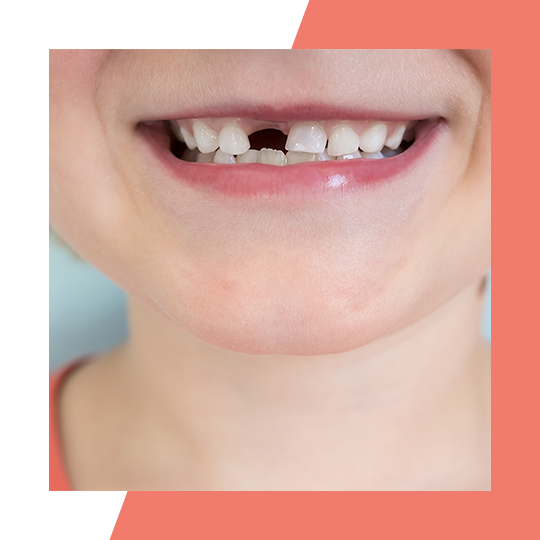Help with Failing, Missing, or Knocked-Out Teeth
A tooth that is loose, missing, or dislodged requires immediate care to prevent further complications.

When Should You See Our Dentist?
A failing, missing, or knocked-out tooth requires prompt dental attention.
Failing Tooth: A tooth weakened by decay, infection, or structural damage that may become loose or deteriorate further.
Missing Tooth: A tooth completely absent due to trauma, extraction, or congenital issues.
Knocked-Out Tooth: A tooth displaced entirely from its socket, often from injuries or accidents.
What To Do If You Have a Failing, Missing, or Knocked-Out Tooth
Taking the right steps promptly can make a big difference in saving your tooth.
Failing Tooth: If a tooth is deteriorating from decay, infection, or damage, visit our dentist immediately. Maintain good oral hygiene by gently brushing around the tooth and using mouthwash. Avoid chewing on the affected side and follow your dentist’s advice.
Knocked-Out Tooth: Act fast—time is critical. Handle the tooth by the crown, not the root, and rinse it gently with warm water or milk. Try to reinsert it into the socket and bite down on clean gauze to hold it in place. If reinsertion isn’t possible, store the tooth in milk and seek emergency dental care immediately.

For any dental emergency involving a failing or knocked-out tooth, contact us or visit the nearest emergency room without delay.
Failing Dental Implants
Dental implant failure occurs when an implant cannot function as intended. It can happen shortly after placement (early failure) or years later (late failure).
1. Early Implant Failure: Occurs within months of placement, often due to poor osseointegration, infection, or implant mobility.
2. Late Implant Failure: Happens months or years later, caused by factors like peri-implantitis, bone loss, mechanical issues, or systemic conditions like diabetes.
Contributing factors include poor oral hygiene, smoking, teeth grinding, improper placement, or insufficient bone density.
Symptoms may include pain, swelling, implant mobility, gum recession, or infection. Treatment options range from antibiotics and professional cleaning to implant removal, bone grafting, or replacement. Preventive care, regular check-ups, and good oral hygiene are key to minimizing risks and ensuring implant longevity.
Your trusted Hamilton dentist near you!
We can’t wait to welcome you! Call us at (905) 388-8888 or complete the form below to book your appointment. We’ll do our best to fit your schedule. Please arrive 15 minutes early for your visit.
(905) 388-8888
865 Upper James St, Unit 4, Hamilton, ON, L9C 3A3
Hamilton Dentist
We understand that trying to find a nearby dentist you can trust is difficult, that is why we make it easy for you to work with us.
Practice Hours
© 2025 All Rights Reserved | Mountcrest Dental
